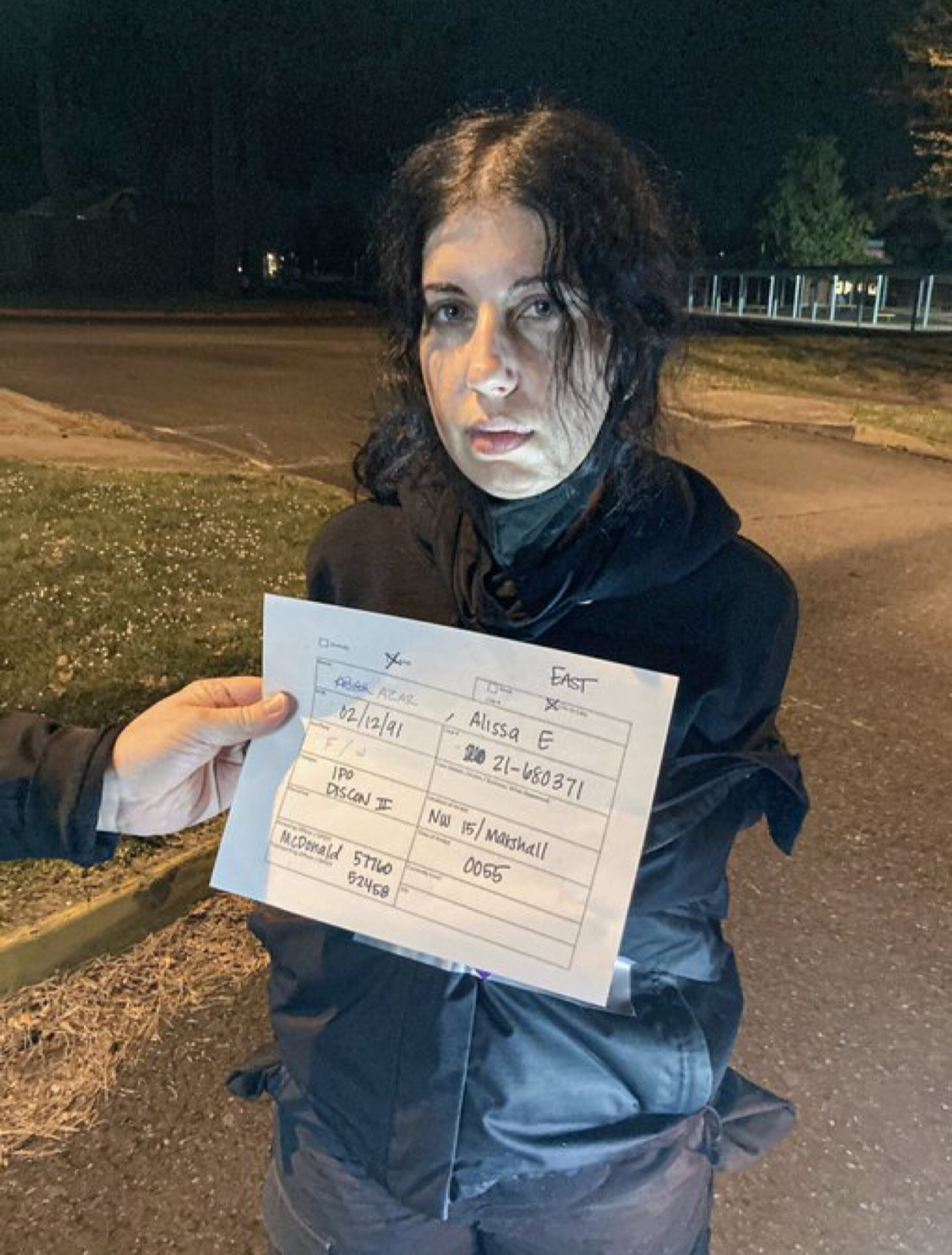
In a significant legal victory against the backdrop of political violence, Alissa Azar, a prominent figure within the Antifa movement, was convicted on felony riot charges stemming from a violent clash in Oregon City. The conviction, handed down on August 14, 2024, marks a pivotal moment in addressing the extremism that has characterized certain elements of political activism in the United States.
Alissa Azar, often portrayed by supporters as a mere journalist or activist, was found guilty of not just participating in but actively inciting a riot during an event that saw Antifa members confront the Proud Boys at Clackamette Park. This incident, which occurred in June 2021, escalated into a full-scale riot involving pepper spraying, physical altercations, and the deployment of smoke bombs, significantly endangering public safety, including that of bystanders, notably a family with young children trapped amidst the chaos.
The trial, which concluded with sentencing set for September 9, 2024, revealed Azar’s deep involvement in Antifa’s operations, far beyond the passive role of a journalist. Evidence presented during the trial, including her own social media posts, painted a picture of Azar as an organizer and instigator, directly contradicting her claims of impartial reporting. This conviction challenges the narrative often pushed by supporters of such groups, where violence is justified under the guise of anti-fascism or counter-protesting.
Critics of Antifa and similar groups argue that this case exemplifies the broader issue of political violence being normalized under the banner of activism. Azar’s actions, as detailed in the trial, were not isolated but part of a pattern of behavior where violence is seen as a legitimate tool against perceived political adversaries. This mindset not only undermines democratic processes but also poses a significant threat to civil liberties, as it blurs the line between protest and criminal activity.
The defense’s strategy, which included attempts at jury nullification by framing the Proud Boys as inherently violent and deserving of confrontation, highlights a troubling trend where legal accountability is dodged by appealing to political sympathies. This approach not only failed in this instance but also underscores the need for legal systems to remain impartial, ensuring that justice is served regardless of political affiliation.
Azar’s conviction sends a clear message that while the right to protest is sacrosanct, the moment these protests turn into orchestrated violence, legal consequences must follow. This case might serve as a precedent for how future instances of political violence are prosecuted, potentially deterring others from engaging in similar acts under the guise of political activism.
However, the broader implications of this conviction extend beyond legal accountability. It opens up a necessary dialogue on the nature of political activism in the 21st century. Are we witnessing a shift where violence is becoming an acceptable form of political expression? The case against Azar suggests that such a shift, if left unchecked, could lead to a society where political discourse is overshadowed by fear of violence, fundamentally altering the democratic fabric.
As the nation watches the sentencing of Alissa Azar, it’s crucial to reflect on how we define and protect the boundaries of free speech and assembly. The conviction of Azar, while a victory for law and order, also serves as a stark reminder of the thin line between activism and anarchy. It beckons for a reevaluation of how we engage with political dissent, ensuring that the pursuit of justice does not inadvertently stifle legitimate protest but firmly stands against those who cloak violence in the garb of political ideology.